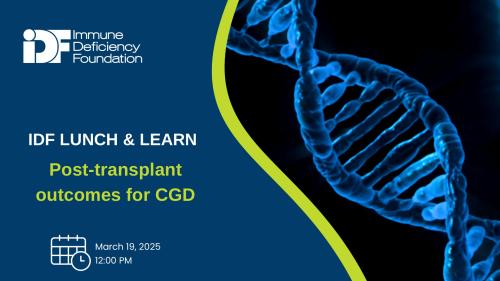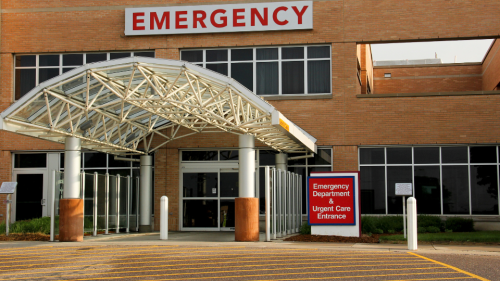
-
Understanding primary immunodeficiency (PI)

Understanding PI
The more you understand about primary immunodeficiency (PI), the better you can live with the disease or support others in your life with PI. Learn more about PI, including the various diagnoses and treatment options.
-
Living with PI
-
Addressing mental health
-
Explaining your diagnosis
- General care
- Get support
- For parents and guardians
-
Managing workplace issues
- Navigating insurance
-
Traveling safely

Living with PI
Living with primary immunodeficiency (PI) can be challenging, but you’re not alone—many people with PI lead full and active lives. With the right support and resources, you can, too.
-
Addressing mental health
-
Get involved

Get involved
Be a hero for those with PI. Change lives by promoting primary immunodeficiency (PI) awareness and taking action in your community through advocacy, donating, volunteering, or fundraising.
-
Advancing research and clinical care
-
Grants
-
IDF surveys
-
Participating in clinical trials
-
Diagnosing PI
-
Consulting immunologist
-
Clinician education

Advancing research and clinical care
Whether you’re a clinician, researcher, or an individual with primary immunodeficiency (PI), IDF has resources to help you advance the field. Get details on surveys, grants, and clinical trials.
-
Grants
Bree Andreazza remembers exactly how she and her husband Troy felt after learning their 4-month-old son Levi had Wiskott-Aldrich syndrome (WAS) and required intensive treatment.
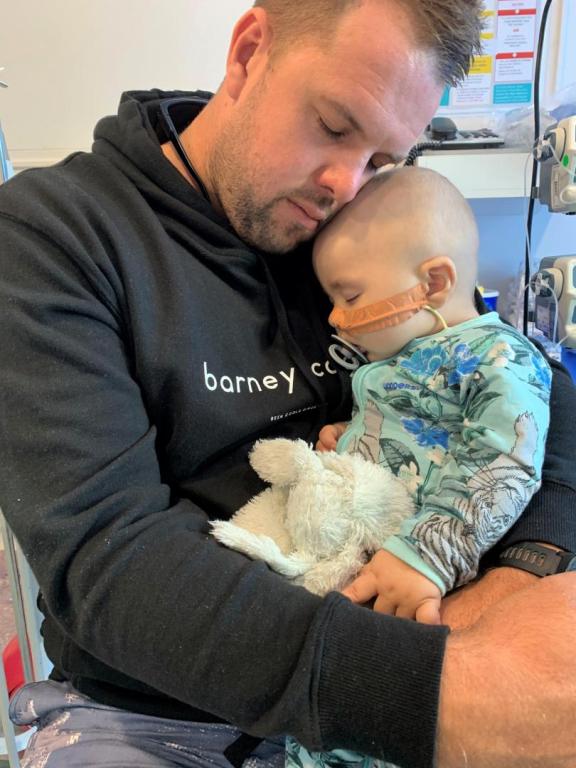
“I went numb the moment they said we had no other option but to proceed with a bone marrow transplant. My husband and I were very upset,” said Bree.
“We were given a lot of information to take and read over as we had to fly back home that same day, and a lot of it in that small room did not sink in. I remember crying every time I looked at my beautiful Levi after leaving our meeting. We felt helpless as parents.”
WAS is an extremely rare primary immunodeficiency that causes abnormal B and T cell function, resulting in recurrent infections; autoimmune problems leading to anemia; and lymphoma. The condition is X-linked which means that most often, women are carriers, and men are affected. The syndrome occurs in about 3 out of every 1 million births globally.
Born on May 30, 2018, in Griffith, New South Wales, Australia, Levi appeared healthy in his first few months of life, but by the fall, he began showing symptoms.
“Levi wasn’t his usual happy self. He refused to settle to sleep, constantly cried, and had high temperatures,” explained Bree.
After a 4-day stay in the local hospital, Levi required oxygen, but his condition didn’t improve. Doctors then flew him to Sydney Children’s Hospital, where he underwent several tests, including a lumbar puncture and a bone marrow aspiration.
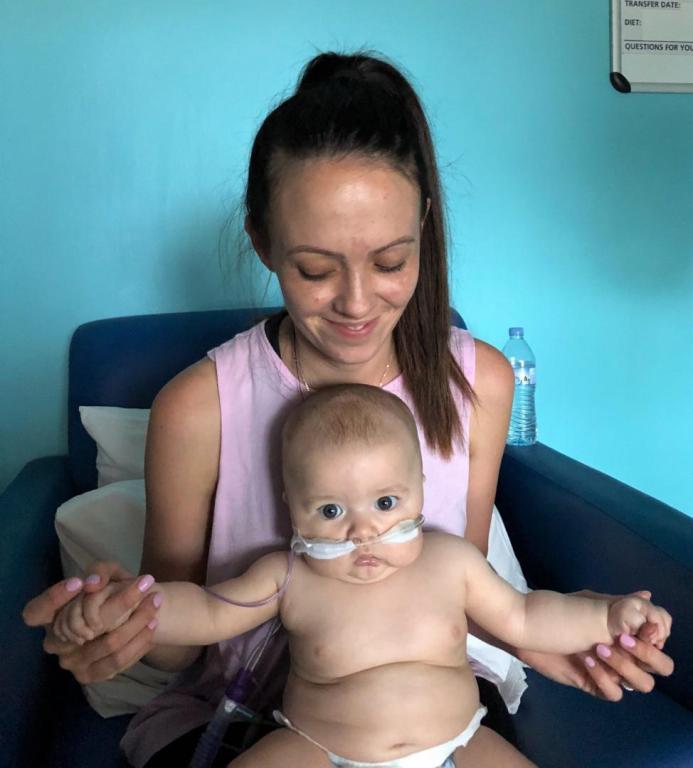
Tests revealed Levi had extremely low hemoglobin, white cells, and platelets. Doctors at Sydney Children’s suspected an immune deficiency and consulted with doctors in the United States, who confirmed a diagnosis of WAS.
“After being told of Levi’s diagnosis, my husband and I did a lot of researching and we obviously had a lot of questions for our doctors, as we did not know what to expect or how to deal with what was ahead,” said Bree.
What lay ahead was a turning point in Levi’s treatment that neither parent could have predicted. Doctors discovered Levi’s older brother, Torren, provided a perfect genetic match in stem cells for his younger brother. Torren would be Levi’s donor.
“As a mother, you would much rather put yourself in this position to help your child. Being told you were unable to and instead your other child being a near 100 percent match gave me mixed emotions. Torren was just under two and a half years old, still my baby boy. I will forever be grateful Torren was a match and able to donate,” said Bree.
Torren donated his cells from his hip while under anesthesia. Doctors took 122 milliliters of liquid marrow from Torren for Levi, said Bree.
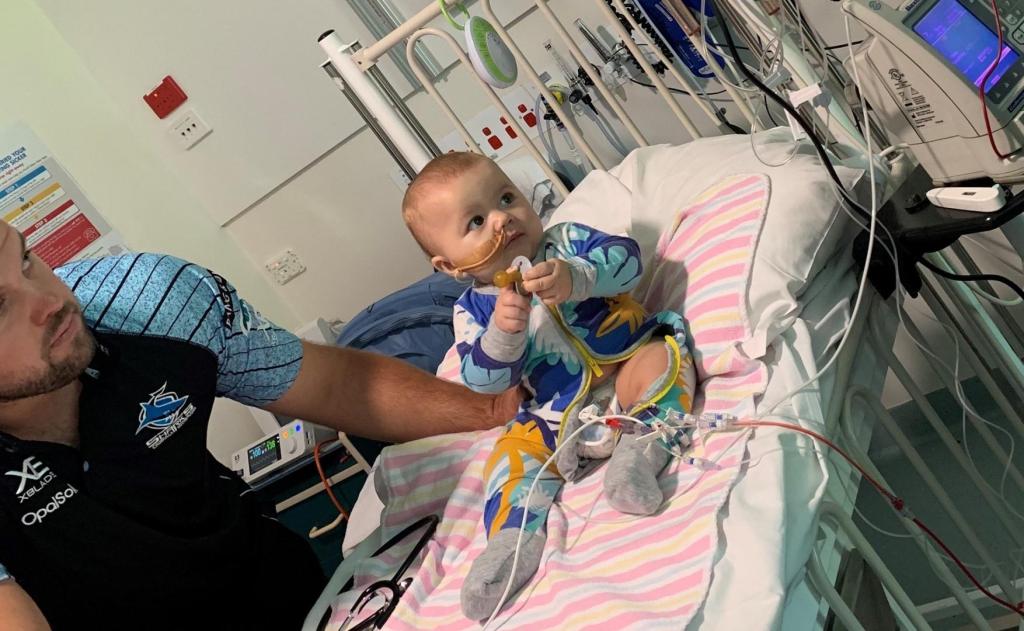
“It was an extremely stressful time. There were a lot of tears every night. I needed to be in both places at the same time,” she said. “A strong feeling of guilt was always beside me throughout this time, especially as myself or Troy couldn’t donate, along with knowing I am the carrier.”
Prior to treatment, Bree, Levi, and Torren moved to a small apartment near Sydney Children’s, a six-hour drive from their home in Griffith, and stayed in isolation in preparation for Levi’s transplant. Troy flew to visit them on weekends, and both grandmothers made trips to the apartment as well.
Levi required numerous blood and platelet transfusions to remain healthy before the transplant. Doctors also administered chemotherapy to make room for the new cells. Levi’s transplant took place on February 7, 2019.
“We had great support throughout our whole stay and especially leading up to and on transplant day from the hospital,” said Bree. “We also had both our parents there on transplant day, which helped a great deal. Just as Levi and Torren needed us – we needed our parents also. It was a hard time, especially for Levi and Torren.”
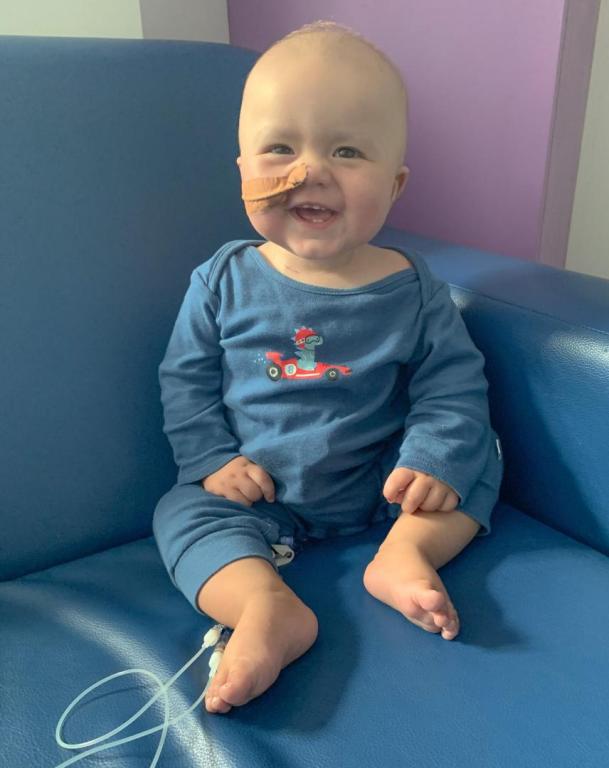
Torren’s cells engrafted in Levi within just a few weeks. While Levi avoided graft versus host disease, he experienced several readmissions to the hospital after his six-week stay due to eczema and other complications.
Finally, after a five-month leave from home, the family moved back to Griffith, just before Levi’s first birthday.
Bree and Tory took Levi back to Sydney every six weeks for check-ups and bloodwork before the pandemic. Now, he has telehealth appointments and local blood draws, which are sent to Sydney. They plan to resume face-to-face appointments in March.
“Prior to transplant, we were advised of the possibilities that can occur throughout life after transplant – this is something that I worry and think about every day,” said Bree. “I am, however, just trying to take each day as it comes, and I look forward to meeting with his doctors every visit to get further reassurance.”
Today, Levi is doing well, and he enjoys outdoor adventures with his brother. Bree describes her sons as both very sweet but also quite different in personality. A quiet child, Torren often follows the lead of his younger and more outgoing, risk-taking sibling.
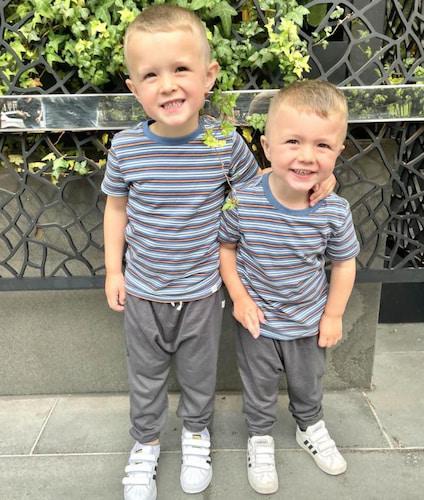
“They are the best of friends. They go everywhere together,” said Bree. “Of course, being brothers, they fight, but there is never a night they go to bed without telling each other ‘I love you.’”
Levi, 2, and Torren, 4, understand little of the incredible bond they share beyond being brothers. Because Torren has a very strong memory, he sometimes inquires why Levi had as “string in his nose,” why he has to go to the doctor so frequently, and how he got his scars.
Bree and Troy simply respond by saying that the doctors are making Levi better – and remind Torren just how important he is to Levi.
“When we tell him that he saved his brother’s life like a real-life superhero, he just smiles,” said Bree.
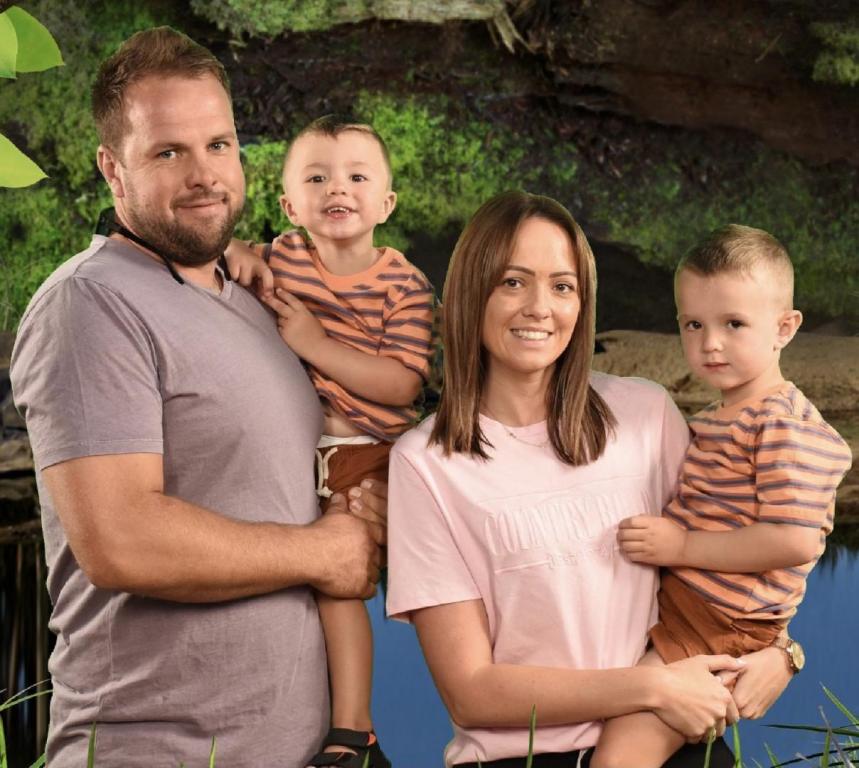
Sign up for updates from IDF
Receive news and helpful resources to your cell phone or inbox. You can change or cancel your subscription at any time.





The Immune Deficiency Foundation improves the diagnosis, treatment, and quality of life for every person affected by primary immunodeficiency.
We foster a community that is connected, engaged, and empowered through advocacy, education, and research.
Combined Charity Campaign | CFC# 66309

